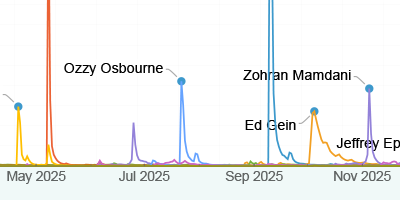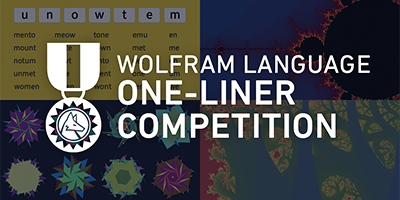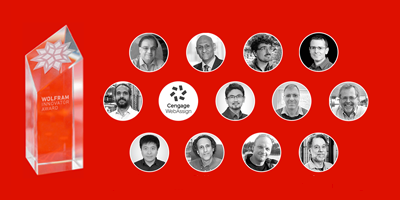The 2018 Wolfram Summer School: A Recap
The 16th annual Wolfram Summer School was another successful immersive education adventure made possible by the power of the Wolfram Language for rapid scientific exploration and software development. A select group of 62 participants from all around the world (ranging from advanced high-school students to postgraduate students and beyond) worked on a variety of computational projects related to science, technology and innovation and educational innovation. The three-week program was packed with cutting-edge technologies, intellectual discussions, innovation in action and community building.

An annual occurrence since 2003, the program has consisted of lectures on the application of advanced technologies by the expert developers behind the Wolfram Language. This year’s lectures and discussions covered intriguing and timely topics, such as machine learning, image processing, data science, cryptography, blockchain, web apps and cloud computing, with applications ranging from digital humanities and education to the Internet of Things and A New Kind of Science. The program also included several brainstorming and livecoding sessions, facilitated by Stephen Wolfram himself, on topics such as finding a cellular automaton for a space coin and trying to invent a metatheory of abstraction. These events were a rare opportunity for the participants to interact in person with the founder and CEO of Wolfram Research and Wolfram|Alpha. Many of the events were livestreamed, and people from around the world joined the discussions and contributed to the intellectual environment.
During the first days of the program, each participant completed a computational essay on a topic they were familiar with to warm up their fingers and minds. This provided the participants with an opportunity to become more familiar with the Wolfram Language itself, but also exposed them to a new way of (computational) thinking about topic exploration and the communication of information. In addition, participants selected a computational project to be completed and presented by the end of the program, and were assigned a mentor with whom they had the opportunity to have one-on-one interactions throughout the school.
Project topics were as diverse as the participants themselves. Modern machine learning methods were prominent in this year’s program, with projects covering applications that generated music; analyzed satellite images, text or social events with neural networks; used reinforcement learning to teach AI to play games; and more. Other buzzword technologies included applications of blockchain through visualizing cryptocurrency networks, while new buzzwords were addressed by implementing virtual and augmented reality with the Wolfram Language. Interesting innovations and contributions were also made in other fields such as pure mathematics, robotics and education. For example, one project produced a lesson plan for middle-school teachers to teach children about quantitative social science using digital surveys and data visualization.

Another new addition for this year’s program was the livecoding challenge event, providing an opportunity to exercise coding and computational thinking muscles to win unique limited-edition prizes. This event was also livestreamed so worldwide viewers could follow the contest—including the revealing code explanations by Stephen Wolfram, making the experience both fun and didactic.
Each year sees completion of advanced projects in a very short period of time. Thanks belong to the highly competent instructors and mentors, as well as the hardworking administration team who worked behind the scenes to ensure everything went smoothly. But to top it all off, simply having the opportunity to directly communicate with the other participants with a broad range of knowledge and skill sets creates a truly unique environment that enables such efficient progress. There were always people nearby—often right next to you—to help in the case of a bottleneck while completing a project, allowing both smooth continuation and timely completion.
In addition to intense learning, accelerated productivity and many lines of code written (albeit fewer than what it would typically take to achieve similar results in other programming languages), the participants engaged in a variety of other team-building and relaxing activities, including biking, running, volleyball, basketball, Frisbee, ping-pong, billiards, canoeing, dancing and yoga classes.
It has been only a couple of weeks since the graduation, but many projects have advanced further while new internships, job opportunities and collaborations have also been established. Each participant has expanded their personal and professional contact networks, and received several hundred views (and counting!) for their project posts on Wolfram Community. This continued professional development is a true testimony to the benefits one obtains while participating in the Wolfram Summer School.
Each year, the program evolves and improves, both by following advancements in the world and by itself pushing the existing boundaries. Next year, there will be new opportunities for a class of enthusiastic lifelong learners to become positive contributors in using cutting-edge technologies with the Wolfram Language. To learn more about joining 2019’s education adventure, please visit the Wolfram Summer School website.



Comments